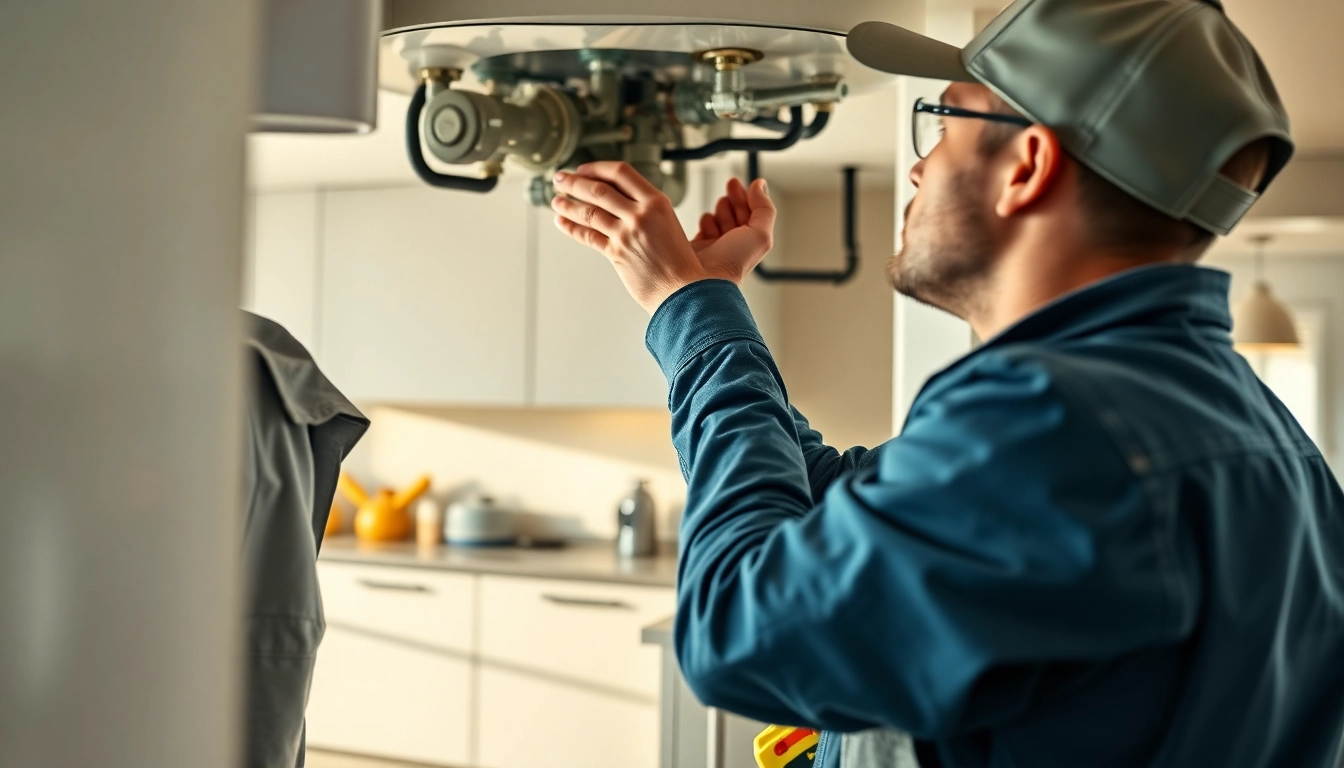Understanding Your Boiler Options
Choosing the right boiler for your home is crucial for ensuring comfortable living conditions and energy efficiency. With various types of boilers available, understanding your options is the first step in the installation process. Moreover, considering your current boiler’s performance can also drive the necessity to replace it. A well-informed decision can save you money and enhance your home’s heating system. From different boiler types to energy efficiency ratings, this section lays down the framework for understanding what might suit your needs best.
Types of Boilers Available
Boilers come in various types, each offering distinct benefits tailored to different heating needs. The three primary types include:
- Combi Boilers: These are compact and known for their efficiency, providing both heating and hot water on demand without the need for a storage tank. Ideal for small spaces and homes with moderate hot water needs.
- System Boilers: System boilers are designed for larger homes that require a consistent hot water supply. They include built-in components like a pump and expansion vessel, precluding the need for additional fittings.
- Conventional Boilers: Also known as regular boilers, these require a hot water cylinder and are suitable for larger households with multiple bathrooms. They can provide a hot water supply to larger systems efficiently.
Energy Efficiency Ratings Explained
Energy efficiency is vital when selecting a boiler, not only for environmental reasons but also for cost savings on utility bills. Boilers are rated from A to G, with A being the most efficient. Look for boilers with an efficiency rating of at least A or A+ for optimal performance and lower energy consumption. Typically, modern condensing boilers achieve efficiencies of over 90%, which translates into significant savings over the lifespan of the unit. Moreover, many energy-efficient models qualify for government incentives, adding another layer of economic benefit.
When to Replace Your Boiler
Recognizing the signs that indicate the need for a boiler replacement is essential for maintaining a warm and cost-effective home environment. Indicators may include:
- Aged boiler systems typically older than 15 years.
- Increased energy bills due to decreased efficiency.
- Frequent breakdowns or repairs, indicating wear and tear.
- Inconsistent heating or uneven temperature distribution.
If any of these issues resonate with your current boiler performance, it’s time to consider consulting with a boiler installer bristol for a professional evaluation.
Evaluating Boiler Installer Bristol Qualifications
Once you’ve decided on your boiler system, the next step is selecting a qualified professional for installation. A reputable boiler installer can ensure that your new system functions correctly and adheres to safety standards. Here are crucial elements to consider when evaluating potential installers.
Certifications and Licenses to Look For
Verify that the installer possesses the appropriate certifications and licenses required for boiler installation. In the UK, registered Gas Safe engineers are essential for gas boiler installations. Being Gas Safe registered indicates that the installer has undergone the necessary training and adheres to safety regulations. Additionally, check for memberships in organizations such as the Heating and Hotwater Industry Council (HHIC), which can provide further assurance of the contractor’s credibility.
Customer Reviews and Service Ratings
Customer feedback can provide insight into the installer’s quality and reliability. Look for online reviews on platforms such as Trustpilot or Google Reviews to gauge previous customers’ experiences. Positive reviews can signal a reliable service, while recurring negative feedback should raise red flags. Additionally, ask the installer for references or case studies of past installations to assess their track record.
Experience Matters: Years in Business
Experience can often translate to higher quality work. An installer with years of experience in the industry may possess a wealth of knowledge concerning various boiler systems and geographical considerations that can affect installation. Moreover, settled businesses are likely to have established standard operating procedures, which can result in more reliable and professional service.
Costs Involved with Boiler Installation
The cost of boiler installation can vary widely based on several factors, including the type of boiler, installation complexity, and your location. It’s essential to understand these factors to budget accurately and ensure satisfactory service.
Breaking Down Installation Costs
When assessing installation costs, consider the following components:
- Boiler Purchase Price: The cost of the boiler itself can range significantly. Combi boilers may be less expensive than system or conventional boilers, but this will depend on the model and brand chosen.
- Installation Fees: The labor costs can vary based on geographical location, complexity of the job, and experience of the installer. Expect to pay a one-time installation fee that reflects these factors.
- Additional Components: If modifications to existing piping or electrical systems are necessary, additional costs may be incurred.
Potential Hidden Fees
Hidden fees can catch homeowners off guard. To prevent surprises, ask questions upfront and clarify what the quoted price includes. Potential hidden fees might include:
- Charges for necessary permits or inspections.
- Costs related to system upgrades needed for the new boiler.
- Fees for disposal of the old unit.
Thorough discussions with your installer can provide transparency and help you avoid unexpected expenses.
Long-term Savings on Energy Bills
While the initial installation cost can be significant, modern high-efficiency boilers can result in considerable savings on energy bills over time. Investing in a boiler with a high energy efficiency rating means you’ll use less fuel and spend less on heating your home. Furthermore, regular maintenance can help sustain efficiency levels and prevent costly repairs.
The Installation Process Explained
Understanding the installation process can help prepare you as a homeowner and set the right expectations for the timeline and responsibilities involved.
What to Expect During Installation
The installation process generally includes the following steps:
- Pre-Installation Assessment: The installer will evaluate your existing setup and recommend adjustments if necessary.
- The Install Day: Your installer will arrive with the necessary tools, supplies, and the new boiler. Expect a team effort, with clear communication on any interruptions to hot water access.
- Testing the System: After completing the installation, the team will run tests to ensure everything is working correctly. They’ll check for leaks and air bubbles, ensuring optimal functionality.
Preparing Your Home for a New Boiler
Preparation is key to a successful boiler installation. Here are steps homeowners can take:
- Clear the area around the boiler location to facilitate easy access for the installers.
- Ensure that pets and children have a safe space away from the work area.
- Communicate any specific concerns or preferences with your installer.
Taking these steps will ensure a smooth installation process.
Aftercare and Maintenance
Installation is just the beginning; ongoing maintenance is crucial for the longevity and efficiency of your boiler system. Key aftercare tips include:
- Schedule annual maintenance checks with a licensed professional.
- Keep an eye on water pressure levels and perform routine checks for signs of leaks.
- Keep the area around the boiler clean and free of obstructions to promote airflow.
Investing time and care into the upkeep of your boiler will enhance its lifespan and ensure your home remains comfortable.
Choosing the Best Boiler Installer Bristol
Selecting the right installation contractor can make a significant difference in the overall experience. The following guidance can help narrow your options to find the best fit for your heating needs.
Getting and Comparing Quotes
It’s advisable to gather multiple quotes from various installers to evaluate the costs and services offered. Here’s how to effectively compare quotes:
- Ensure that each quote outlines the services included, from boiler installation to warranties.
- Compare the total costs rather than focusing solely on the boiler price to get a clearer picture.
- Assess the expected timeline for installation to ensure it aligns with your needs.
Questions to Ask Your Installer
Asking the right questions can clarify details and build trust with your potential installer. Consider these inquiries:
- What type of boiler do you recommend for my home and why?
- Can you provide references or examples of previous installations?
- What warranties or guarantees do you offer?
Making the Final Decision
Once you’ve gathered information, weigh your options thoughtfully. Consider not only the price but also the installer’s reputation, qualifications, and customer service. Choosing an installer who understands your specific heating needs and offers support throughout the installation process can provide peace of mind and enhance your satisfaction with your new system.



